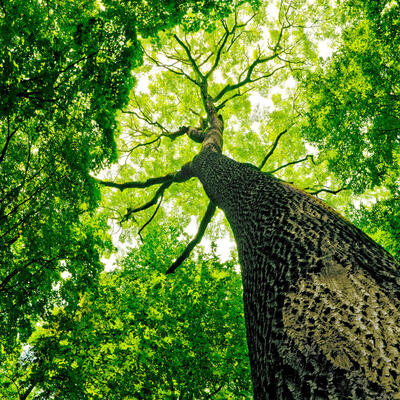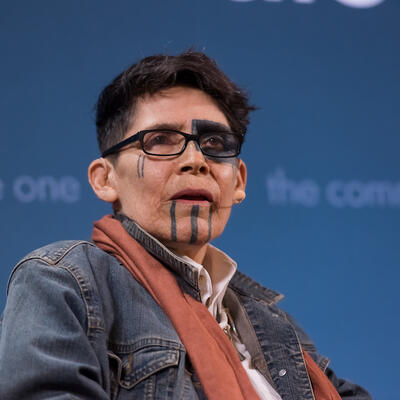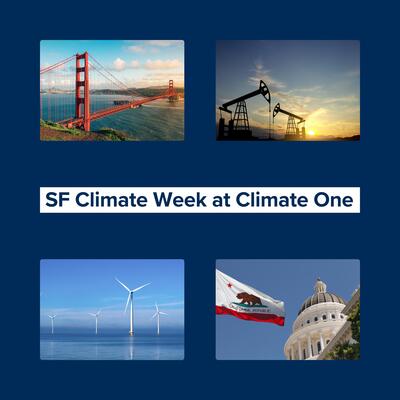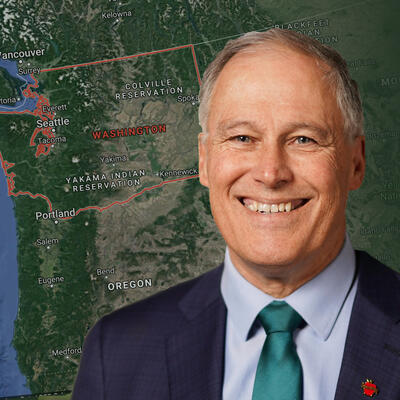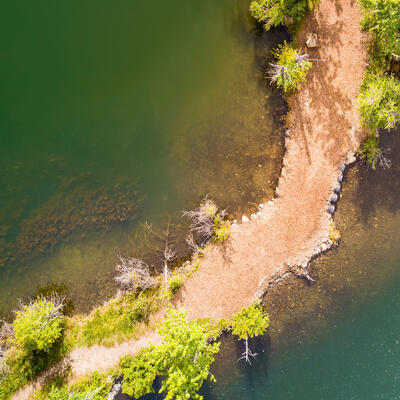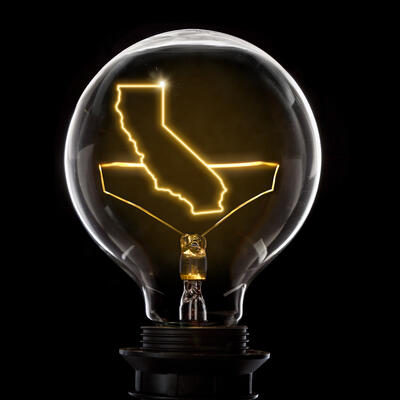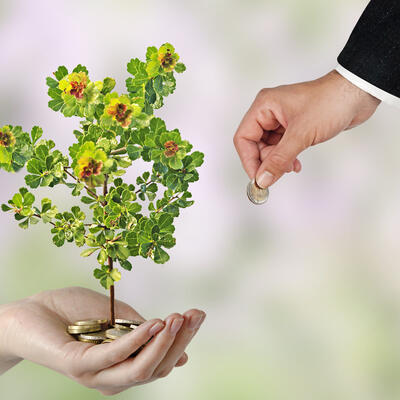
Carbon Offsets: Privileged Pollution?
Guests
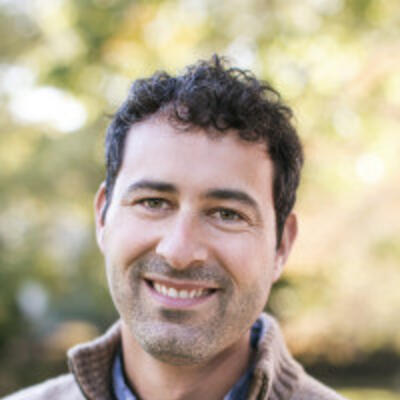
Kahlil Baker
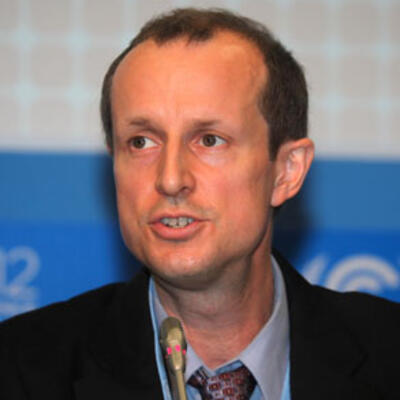
Derik Broekhoff
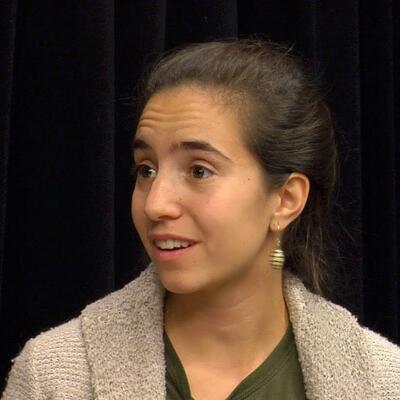
Zoe Cina-Sklar
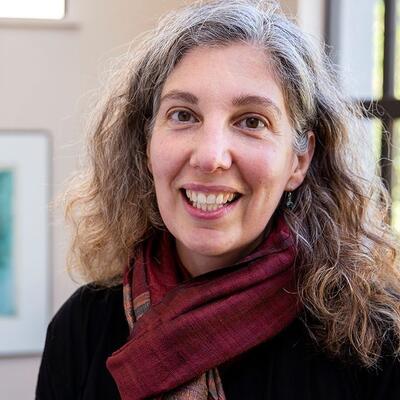
Barbara Haya
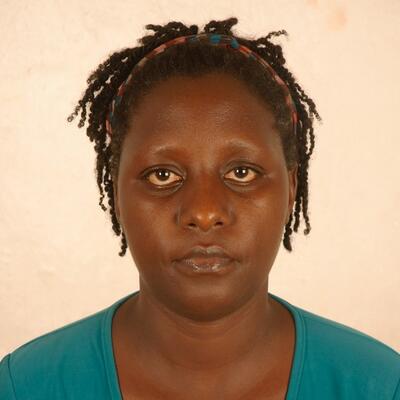
Pauline Kalunda
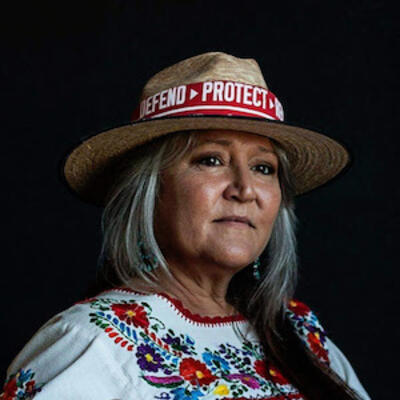
Pennie Opal Plant

Rajinder Sahota
Summary
A carbon offset is a credit – a way to offset a unit of pollution created in one place by, say, planting a tree, or otherwise sequestering carbon, somewhere else. But in the race to bring carbon emissions to zero, are offsets a legitimate tool, or a delusion that allows heavy emitters a way out of taking real action?
“I just need to recruit everybody to make sure the forests remain forests and the farmlands have as many trees as possible,” says Pauline Kalunda, Executive Director of Ecotrust Uganda, a non-governmental conservation organization in Uganda. She uses money from carbon offsets purchased in wealthy countries to help build environmental resilience at the community level. Buying offsets can help fund carbon-reduction projects in developing economies with limited funding – but they don’t help reduce dirty air back home.
“We ultimately need to get to a point where it is really, really expensive to pollute so that people pollute a lot less,” maintains Kahlil Baker, Executive Director of Taking Root, a Canada-based group which also works with the offset market to promote economic development among smallholder farmers in Nicaragua. Voluntary offsets are great for eco-conscious consumers who want to ease their climate guilt. Do they run the risk of letting individuals think they’re off the hook for their carbon sins?
“I’m a lot less worried about offsets from individuals than I am about Chevron offsetting,” says Zoe Cina-Sklar, a climate justice campaigner with the advocacy group Amazon Watch. She worries about corporations and other large polluters using offsets to avoid accountability under state climate policies.
Barbara Haya, a research fellow at UC Berkeley’s Center for Environmental Public Policy, who studies California’s offsets program, echoes this worry. “We’re allowing businesses in California like Chevron and Phillips and other large emitters to continue to emit,” she claims, “because they're buying these credits that many of which don't actually represent real emissions reductions.”
But Rajinder Sahota, who leads the Cap and Trade program for the California Air Resources Board, disagrees with the takeaways of Haya’s research. “The offsets don't play a specific line item in reducing emissions towards our target,” she counters, “they are a compliance currency under the cap and trade program.”
Ultimately, carbon offsets work best, as Derik Broekhoff from the Stockholm Environmental Institute puts it, as the icing on the cake and not the cake itself. “The advice for voluntary offset has always been reduce your own emissions first,” he suggests, “and then turn to offsets as a kind of additional even charitable contribution that you can make towards both helping the climate and making the world a better place.”
Full Transcript
Greg Dalton: This is Climate One, changing the conversation about energy, the economy, and the environment.
Greg Dalton: In an ideal world, everyone would have a smaller carbon footprint. In the real world, some people try to be less bad by buying carbon offsets.
Pauline Kalunda: People sit down and try all means to reduce their footprint. But whatever else are they cannot do without, they offset.
Greg Dalton: But is creating a market for pollution part of the solution or part of the problem?
Zoe Cina-Sklar: We've seen a lot of markets and a lot of incremental change at best.
Greg Dalton: Are carbon offsets just a(nother) way for consumers in industrialized countries to ease their climate guilt?
Kahlil Baker: Financing activities that help remove carbon from the atmosphere isn’t going to fix climate change in its own right. But I think it's really important first step.
Greg Dalton: Carbon Offsets and the Privilege to Pollute. Up next on Climate One.
Greg Dalton: Are carbon offsets a delusion, a flawed tool, or something else? Climate One conversations feature oil companies and environmentalists, Republicans and Democrats, the exciting and the scary aspects of the climate challenge. I’m Greg Dalton.
Greg Dalton: A carbon offset is a credit – a way to offset a unit of pollution created in one place by, say, planting a tree, or otherwise sequestering carbon, somewhere else.
Pauline Kalunda: I just need to recruit everybody to make sure the forests remain forests and the farmlands have as many trees as possible.
Greg Dalton: Pauline Kalunda is Executive Director of Ecotrust, a non-governmental conservation organization in Uganda. She uses money from carbon offsets purchased in wealthy countries to help build environmental resilience at the community level. Buying offsets can help fund carbon-reduction projects in developing economies with limited funding – but they don’t help reduce dirty air back home.
Kahlil Baker: We ultimately need to get to a point where it is really, really expensive to pollute so that people pollute a lot less.
Greg Dalton: Kahlil Baker is Executive Director of Taking Root, a Canada-based group which also works with the offset market to promote economic development among smallholder farmers in Nicaragua. Voluntary offsets are great for eco-conscious consumers who want to ease their climate guilt. Do they run the risk of letting individuals think they’re off the hook for their carbon sins?
Zoe Cina-Sklar: I’m a lot less worried about offsets from individuals than I am about Chevron offsetting.
Greg Dalton: Zoe Cina-Sklar is a climate justice campaigner with Amazon Watch, an advocacy group. She worries about corporations and other large polluters using offsets to avoid accountability under state climate policies.
Pennie Opal-Plant: I mean, I’m astounded at the decades that elected officials have known about the climate crisis and have done nothing.
Greg Dalton: Pennie Opal Plant is co-founder of Idle No More Bay Area, a grassroots climate organization led by Native American women. She is critical of California’s offset and cap and trade programs,which we’ll explore further later in the hour with a state official. First Pennie and the others others joined me at for a roundtable discussion of international and domestic carbon offsets. I began our conversation by asking Pauline Kalunda how individuals buying offsets in developed countries actually affects people in emerging economies.
Pauline Kalunda: The way people in the developing countries approach carbon offsets is actually from the adaptation perspective. Because we live at the front-line we are affected by climate change, so we look at it from the perspective of building our resilience. So from the developed country it comes as you’re offsetting a footprint from the developing country it comes as I'm building my resilience.
Greg Dalton: And is there an element of justice in that because the developing countries didn't really create this problem the rich countries did. Most of the carbon up in the air is red white and blue, which means it's American, French, Russian, etc. Is there an element of justice embedded in a carbon offset?
Pauline Kalunda: Yes it has an element of justice because normally to create a carbon -- to pollute, you have the ability to withstand it, to withstand the impacts of pollution. Whereas we stand in the perspective of our contribution is so small but then we suffer the consequences. So we are not a very litigious community so we don't normally look at things from the perspective of punishing and justice. But we look at it from the perspective of cooperation and partnership.
Greg Dalton: And so if someone buys an offset that comes to Ecotrust what happens what do you do with that? Is it planting trees, you said building resilience, what does that mean?
Pauline Kalunda: Yes. We work with the communities that are dependent on rain fed agriculture. Mainly these are communities that depend on forest for fuel, wood, water for all their basic needs. So what we do is that we develop a community vision in which we would like to build the resilience of the landscapes both the productive and the natural landscapes. And we highlight areas where the planting of trees will have significant environmental benefits, reducing water flow siltation and so on and so forth. So when you come as an organization as experts we quantify the carbon stocks that will result from that land use plan. So when you come to Ecotrust you’re buying just the carbon stocks but the package has so many other things in it.
Greg Dalton: Kahlil Baker, what happens with Taking Root in Nicaragua. Something similar in terms of, you know, enhancing forest with money that would not otherwise be there and helping those communities?
Kahlil Baker: Yes, like Pauline was saying it starts from having a community achieve some of the ambitions that were in place and bring a financing mechanism that allows them to make some long-term investments within resilience and to agriculture systems and land use activities. They’ll gonna help both reduce carbon in the atmosphere but at the same time allow the community to make long-term investments they otherwise couldn't have made.
Greg Dalton: Right. Pennie Opal Plant, you have a different view on carbon offsets which are a key part of California's cap and trade system, which is one of the biggest things key part of California's climate action you live near some refineries. Tell us your view on carbon offsets used by big energy suppliers.
Pennie Opal Plant: I just want to start out by saying to Pauline and Kahlil that that does sound like a wonderful mechanism for your communities. So I’m looking at a longer vision of safety for all the babies in the world. That's my focus is ensuring that they have a safe and sustainable future. And I'm right up against the belly of the refineries in the San Francisco Bay there's five refineries and the rates of respiratory issues, asthma, cancer is dramatically increased from anywhere else in the county. And as an indigenous woman I also have a little bit of a different perspective because women that I love and I'm close to are at the extraction sites and the tar sands and the Bakken oilfields in North Dakota and in Ecuador and Peru and like all over. And so I am very familiar with what the fossil fuel industry has done to indigenous people and others around the world. And here we are at the end of the world as we know it because the world as we know it's not going to be the same for my grandchildren and my you know all of our the babies that we love. And so how do we look at shifting the system the entire system so that your communities can get the resources that they need to do the good work that you're doing, but where we’re not allowing the fossil fuel industry to continue to harm all of us.
Greg Dalton: And so a key part of that California cap and trade program allows offsets where the rationale is that let them go with the lowest cost and that allows companies to pollute in California the United States and offset that in the developing world where those companies say it's cheaper. That's good for customers because it keeps the energy prices low in California elsewhere and so what Pennie, you’re seem to be saying that allows pollution in your neighborhood and people get to sort of those companies the state is allowing them to clean up another part of the world in which may be good for that part of the world, but are they pitting certain people against each other?
Pennie Opal Plant: Absolutely. It’s the latest form of colonization and we’re seeing that in places where these contracts maybe not in your community but definitely up in the Yurok Tribe in Northern California where the decision-makers to sign the contract there with the state of California did not conduct prior informed consent with all the tribal members. And when we went up there to talk to the women we were invited to go up and talk to the women about the indigenous women of the Americas defending Mother Earth treaty. We talked to them about what signing that contract does to our indigenous sisters. And they were appalled because they were sold that contract and it’s I believe it's 100-year contract. They were sold that contract by the people signing the contract, telling them that they are climate heroes from signing that contract. Where we all know that the fossil fuel industry needs to be reined in. I mean that has to happen otherwise we’re not gonna make it. I mean scientists are talking about extinction. So I don't think just about my communities, I really do think what part of that sacred system of life is being destroyed because of human’s impact on this system. Like how do we look at the system that created these problems from a more elevated perspective and say what caused these problems. The system of economics that we have now caused these problems.
Greg Dalton: Pauline Kalunda, can you see carbon offsets as a new form of colonialism where the developed countries are kind of using money to exert some control. They’re now mainstream and there's lots of even large environmental organizations that are supporting them. So people see opportunity powerful interest can come in and get hold of them.
Pauline Kalunda: Exactly. Because when these things were being designed because the offset market has been around. The voluntary market has been around for a very long time before the IPCC came about before the Kyoto Protocol came about, in what they call the voluntary market. People were offsetting, companies were offsetting, organizations were offsetting. And they used to have what is called the mitigation hierarchy whereby you start with a planning where you agree on the critical issues that cannot be offset because they cannot be tampered with. And you to start with avoidance and then followed by restoration and whatever cannot be avoided and cannot be restored is what you offset. There are some terminologies like, for like, but then when it comes to whoever you referred to as a colonialist comes in to take advantage. Then they take only the end that meets their objective that fits into their narrative, so to speak.
Greg Dalton: Kahlil Baker, do you use personal carbon offsets when you fly around do you buy offsets to your plane ride here from Nicaragua?
Kahlil Baker: Yeah, I mean I do, but maybe I can take a step back for a second and focus on why we created this system, right. Ultimately, te have to bring carbon out of the air because carbon isn’t inherently immoral or bad we all exhale carbon dioxide. And so because it’s not inherently immoral, we can’t say it is illegal to emit CO2 because we exhale it, right. If we can’t say it is illegal then we ultimately have to discourage people from polluting so much. And the idea is we got to put a price on it, right, we have to internalize that externality. So the price of pollution is factored in when people make decisions. And so the first part is putting a cost on pollution. And so at carbon offset is hey we’re acknowledging there’s a price. Ideally, this will be done at the global level and the price would be really, really high that really polluting activities like fossil fuels isn't something that could be done. And so we want to discourage that behavior as a first step, right. And once that is done with and what do we do with that money? We could invest it in education or a whole bunch of other social goods but we could also invest it in activities that help fund the removal of carbon from the air. So I really see it from that perspective.
Greg Dalton: So if people want to buy a carbon offset how should they think about them and be helpful because it's a very confusing world to try to buy offsets.
Kahlil Baker: The way I think about it is if you are gonna buy organic food, right or free range eggs. How do you know that the food that you’re buying is really organic or do those chickens really were free range. And so ultimately it’s gonna come down to trust, right. And so you can develop trust in many different ways. Ideally, know your farmer or know the activity that you’re helping to support the carbon offsetting to that you’re supporting. I mean if you don’t have that opportunity then we rely on things like standards or the reputation of the people doing it the people behind the project. So in the carbon industry like in the organic industry there’s certified organic there are different carbon certifications and like all certifications they’re imperfect, right. So an exotic timber plantation of an invasive species where people are displaced might be a really effective pump at sequestering carbon, you might be able to get that certified saying look we are really effective at removing carbon but that misses the point.
Greg Dalton: Right. I'd like to ask Zoe Cina-Sklar. Carbon offsets, I don't think you use them when you go home to Oregon you take the train, you know, should people avoid carbon offsets or should they be try to be smart when they buy them. What’s your view on them?
Zoe Cina-Sklar: So often and we talk about climate change we make it about the individual. We make it about the choices of whether each of us is going to drive a car or fly or buy organic. And there certainly is a broad problem with consumption in the world. And if you look at the drivers of climate change, if you look at the people and there are people whose names and addresses who are allowing this crisis to continue its fossil fuel CEOs it's cattle event, it’s huge cattle trading commodity traders in the Brazilian Amazon going deep into the rain forest. And those actors really need to be held accountable and so often the way offsets work is the transferring of costs and so it's meaning that people still can't breathe clean air it's meaning that we’re having climate disasters where people are losing their homes and losing their livelihoods. And it's meaning that indigenous communities who've been the best stewards of the land for millennia are sometimes getting displaced. And I totally trust that my fellow panelists here have really good programs that are working to avoid those tensions. But there is a history of indigenous people being told sign this contract receive money and they're already protecting their lands. Indigenous peoples are less than 5% of the world’s population but they are stewards for 80% of the world’s biodiversity. They’re incredible protectors and in their cosmovisions it's not necessarily about money. And I do think there is a need to be, I know there's a need to be transferring resources from the global north from those of us who are responsible to the global south. And I think that that needs to be happening in a more systemic way, not about you or me buying an offset and certainly not about a big oil company that's making it hard for people to breathe in Richmond, California buying an offset in Amazon.
Greg Dalton: You’re listening to a Climate One conversation about carbon offsets. Later we’ll hear more about California’s offsets from an official with the state’s air board. First, more from our roundtable about the challenges of paying for the privilege to pollute.
Pauline Kalunda: What do I need to do to incentivize these people to leave the forest as a forest, to make the integration of trees on a farm a profitable venture.
Greg Dalton: That’s up next, when Climate One continues.
Greg Dalton: This is Climate One. I’m Greg Dalton, and we’re talking about the carbon offsets market with Pauline Kalunda, Executive Director of Ecotrust in Uganda. Kahlil Baker, is Executive Director of Taking Root in Nicaragua. Pennie Opal Plant, cofounder of Idle No More Bay Area. And Zoe Cina-Sklar, a climate justice campaigner with Amazon Watch. Let’s pick up our roundtable conversation with a larger question to Zoe about markets – are they part of the solution or part of the problem when it comes to the climate crisis.
Zoe Cina-Sklar: I think they are a big part of the problem. When we look at how we've dealt with climate change that's far I would say dealt in big air quotation marks. We've seen a lot of markets and a lot of incremental change at best. We’re still seeing rising greenhouse gas emissions and we’re seeing a rise of climate catastrophe every year. And people are looking to the market and grasping for these market solutions in that moment. And I would say that that's we've tried that and it has not been working. And we have this really, really short window to take real action and often when you see policies that could step up to the crisis like the Green New Deal people say but it's gonna cost too much we can’t afford it. And I would say that the cost of inaction or delaying action is so much greater. And to Pennie’s point, redistribution must be part of that when we have billionaires who have those resources and people who don't have enough to meet their basic needs. There's a need for that money to move and if we don't see that movement and redistribution of money, I don't think we will be able to face the enormity of this crisis.
Greg Dalton: There are some billionaires coming forward, Ray Dalio and others saying tax us more, right. Some of them, not all of them but some people are coming forward saying, yeah, I should be. Kahlil Baker, your organization feeds into carbon markets, markets are faster, powerful. Can they be part of the solution?
Kahlil Baker: Yeah, I mean, I’m just hesitant when we use big terms like that. Like markets to me ultimately means we’re trading between people and people have done that for since beginning of when there’s been people. But within every exchange markets are made by rules and society makes those rules. And so we can direct, we’re not gonna get rid of exchange between people, right, that’s as fundamental as since humans have been creating civilization. So we need people we need politics we need pricing those we need democracies to shape markets to get them to where we want them to go.
Greg Dalton: Changing the rules of markets. There’s some really wonky things going on.
Kahlil Baker: Taxation and billionaires being taxed more we’re talking about redistribution, right. And the importance of distribution and inequality creates so many problems, it doesn’t inherently mean that we shouldn’t be financing activities that remove carbon from the atmosphere. And it doesn't mean that we shouldn’t put a price on pollution so that we can get to these aims.
Greg Dalton: Pennie Opal Plant.
Pennie Opal Plant: You know that’s the second time you brought that up Kahlil about how the carbon market reduces carbon. But I mean Pauline brought up that they had been, this has been happening for decades as we know, and carbon has increased. So can you talk about that little bit more like I'm curious how do you reconcile those two facts.
Kahlil Baker: Yeah, I mean I didn't explicitly say that this is fixing the problem or the problem has been fixed. We ultimately need to get to a point where it is really, really expensive to pollute so that people pollute a lot less. And there is evidence of where I live now in British Columbia where they put a tax on carbon. And academics have study this and they think that it has reduced the amount of emissions that would've happened otherwise. Emissions have still gone up, which is a horrible thing and so I think that price needs to be a lot higher. But what if it's not for pricing pollution for pricing the emission of carbon dioxide, what other mechanism do we think is going to be really, really effective doing that.
Pauline Kalunda: I also, I’m a bit should I say confused. I'm thinking that there is no silver bullet. There are things that are completely unacceptable with our own notes there is an opportunity to offset the things that are just completely unacceptable. Just like we have the judicial system whereby if you’re mad at someone, I mean you’d be thrown into the corridors or something like that. So you can’t say that because there is a way to punish evildoers then evil is on the rise. There’s got to be everything but also the offsetting system that we work in for example is purely voluntary. Where people sit down and determine their footprint and try all means to be able to reduce the footprint but whatever else are they cannot do without they offset. So you can’t say that simply because other people are taking that as an opportunity to whitewash themselves therefore the opportunity for others to have zero impact should also be taken away. So I'm thinking that there is a place for a market, but it is not the silver bullet. There are very many other things that need to be done in combination with the market.
Greg Dalton: Sure. I think a lot of people would acknowledge that they’re imperfect there needs to be a price on carbon. There needs to be lots of other things, reductions, etc. I'm wondering if, Zoe, offsets create a moral hazard sort of the illusion that oh okay I can throw some money and, you know, because I interview a lot of climate evangelists who dedicate their lives to climate and they fly all over the place and that's their number one carbon sin and they acknowledge it and they somehow justify it as well. I'm doing more good, my net balance is positive but they’re on airplanes all over the place which we all know is the most harmful thing we can do it harms the environment at a vulnerable elevation. So does this ultimately have to come down to a moral issue?
Zoe Cina-Sklar: I think there's a lot of pieces of the climate crisis that are a deeply moral issue. And I’d go back to what I said at the opening about the role of the individual versus the role of the system. So I’m a lot less worried about offsets from individuals than I am about Chevron offsetting. So to give a piece of how it's connected to my work a lot of oil from the Amazon about half of all the oil exports from the Amazon are refined here in California. And that's making it hard for people, for Pennie’s neighbors to bre athe and is causing climate crisis. And in one of the provinces where there's a lot of oil drilling in Ecuador in Pastaza the governor wants to join California's offset program. So we’re looking at a situation where Chevron could be paying the governor of Pastaza to keep polluting communities here in California while at the same time continuing oil drilling in his province. So we’re seeing that being a true moral hazard where there's these big corporate polluters getting let off the hook. And so I think this piece of the individual and the voluntary market is one piece and this piece of offsets as part of climate policies of states like California is another. And at the broader level with these offsets there's also just huge issues around efficacy and leakage. So the drivers of climate change are fossil fuel extraction and deforestation and those drivers are continuing and expanding. And unless we’re looking at those drivers we’re gonna see that offsets aren't even decreasing emissions at a global level. There’s a really interesting forthcoming study from, UC Berkeley researcher Barbara Haya looking at offsets in the California context. And she found that 82% of these offsets which are domestic offsets not international, that 82% of those offsets are not actually having an impact because of leakage. So one timber company is cutting down fewer trees and another timber company is turning around and cutting down more trees. So I think we have to be looking at those drivers and again looking at the broader system and who is buying these offsets. The International Aviation Association is really excited about offsets and the climate impact of that sector is a lot bigger than even the most frequent fire among us.
Greg Dalton: If you’re just joining us at Climate One we’re talking about carbon offsets with Zoe Cina-Sklar, a climate justice campaigner with Amazon Watch. Pennie Opal Plant, cofounder of Idle No More Bay Area. Kahlil Baker is Executive Director of Taking Root in Nicaragua and Pauline Kalunda, is Executive Director of Ecotrust in Uganda. It’s easy to say and I interview lots of people who other people should change. Republican should do this, China should do that company should do that, the state. And a lot of the great moral leaders of social movements have said change begins with the individual and then emanates outward. And then it’s easy to blame a company, you know, a Chevron or a Shell but we smoke their crack. Now most people don't have choices. So we are complicit and that's where it gets really and this is a sincere, I'm very conflicted and looking to Pennie for how you sort that out.
Pennie Opal Plant: It’s hand-in-hand. The solutions have to come from every sector from individual. I recently made the decision I wasn’t going to fly anymore. So my family is going to Hawaii without me this summer.
Greg Dalton: You’re the moral leader I’ve been looking for.
Pennie Opal Plant: You know, I think that’s an individual choice. I have no judgment on anyone else's, you know, how they are living their life. But for me, I realized that the way that I think and the way that I feel has to be in alignment and for me that alignment included not flying anymore. And I just want to say that I'm really disappointed in Amtrak because I have a conference to go to in fossil fuel frontline fossil and fuel and oil, sorry, I’m still a little sick, conference in Oklahoma. And I was gonna take Amtrak and it was gonna take 49 hours to get there. So I have a hybrid I couldn't get there on an electric vehicle to Oklahoma but I can drive my hybrid there which dramatically reduce my carbon. But I think that, you know, when we look at how do as individuals but how do we do this well it include like how do we make Amtrak better. How are we gonna move people around this continent in a way that isn't carbon, creating more carbon. What do we do as individuals but also how do we shift the entire system so that these polluting corporations whose shareholders, not all of them support them, you know, there are shareholders that are not in alignment with what these corporations are doing. And so how do we shift this whole system again it’s such a critical time and we might not make it. So how do we work together to figure this out to move forward in the best way. It’s now. Our future generation is not going to be able to make those decisions, it's on us.
Greg Dalton: And you made that decision about not flying, not because of the impact because a lot of people would say, Pennie, you’re not flying you’re not gonna accomplish anything but it's because so you can live with yourself.
Pennie Opal Plant: Absolutely. And we all have to do that.
Zoe Cina-Sklar: And just to add to that a little bit. I imagine many of our listeners are here in the United States and as someone in the United States who has the privilege to be making some of those choices. I think there is a huge power in making those individual choices. I don't want to discount that so I think saying I’m going to make the choices I can make because I have the means to do so is a great thing to do. And the amount of consumption in the U.S. is disgusting and it's just about tying that to the broader crisis into the actors who hold the fundamental responsibility more than the individuals.
Greg Dalton: Pauline, should I feel guilty for my lifestyle?
Pauline Kalunda: I don’t know your lifestyle.
[Laughter]
What I know is that where I come from I feel like I just need to recruit everybody to make sure the forests remain forests and the farmlands have as many trees as possible. So whereas where you're coming from the kind of decision that you kind of take is from the consumers perspective where it come from it’s from the producer's perspective. So yes there are many, many pieces to these but yes where I come from is what do I need to do to incentivize these people to leave the forest as a forest. What do I need to do to incentivize these people to make the integration of trees on a farm a profitable venture. And if selling its service because while they go about increasing trees on their land they provide these services the carbon sequestration service the climate service. So if commoditizing that service adds on that income stream that makes an agroforestry system, a profitable venture that makes it to break even then that's what I do. That's the contribution I make.
Greg Dalton: So as we wrap up here I want to get to bridging the individual and the systemic. Because we know individual action isn't enough and yet we have a hard time acting at a systemic level if we’re not in a position of power. So how can, you know, Pennie, how can an individual affect the system, because systems are big and they don't have simple buttons we can just press?
Pennie Opal Plant: And they haven't been successful at keeping us safe. I mean I’m astounded at the decades that elected officials have known about the climate crisis and have done nothing including the United Nations. So, it hurts, it’s painful. And because we know that they are locked into a system that isn't working, I encourage and invite every human being in the entire world to rise up with others who are rising up. Because I think it's going to take about a billion of us rising up together at the same time around the world continuously on specific days to force policymakers to make the difficult decisions that need to be made right now. If there are millions of us in the streets, stopping commerce, stopping travel, stopping the wealthiest people’s rivers of income, then things will change.
Greg Dalton: You're listening to a conversation about carbon offsets. This is Climate One. Coming up, we’ll hear different perspectives on the offset credit program in California, which is a growing part of the state’s efforts to reduce carbon emissions.
Rajinder Sahota: We learned from the mistakes in the international programs and decided that we didn't want to replicate many of those features into our own program.
Barbara Haya: We’re allowing businesses in California like Chevron and Phillips and other large emitters to continue to emit because they're buying these credits that many of which don't actually represent real emissions reductions.
Greg Dalton: That’s up next, when Climate One continues.
Greg Dalton: This is Climate One. I’m Greg Dalton. Barbara Haya is a Research Fellow at the UC Berkeley Center for Environmental Public Policy. She studies California’s carbon offset program, and is critical of its results.
Barbara Haya: It's not performing as advertised. It's generating many fewer reductions than credits it generates.
Greg Dalton: Rajinder Sahota, who leads the Cap and Trade program for the California Air Resources Board, disagrees.
Rajinder Sahota: We don't have a deduction line for offsets. They are a compliance currency under the cap and trade program.
Greg Dalton: We’ll hear more from Rajinder in just a bit. First, Barbara Haya explains what her research has shown about the role of offsets in California’s carbon reduction plans.
Barbara Haya: The majority of our reductions are coming from direct regulatory measures. So far the cap and trade program has had very little effect. Our cap and trade program is expected to include something like 40% of our reductions.
Greg Dalton: In the future.
Barbara Haya: In the future.
Greg Dalton: Direct regulation now you're talking about mandates on companies so a hundred percent renewable energy and you got to be cleaner. Those sorts of direct mandates are the thrust of California's program right now. Cap and trade, which has gotten a lot of the attention of California’s program isn't doing much now, but it will be up to 40% in the future.
Barbara Haya: Right. And going forward offsets can be used to meet half of those reductions. So the quality of our offset program really strongly affects the quality and the effectiveness of our cap and trade program.
Greg Dalton: And what grade would you give California's offsets?
Barbara Haya: So California structured its offset program to remedy the impacts of the UN's offset program. It has not fully done that. So a report that I came out two months ago looked at the Forest Offset Protocol which is generating 80% of California's offset credits, huge number of credits. And I found that four in five of those credits don't represent real emissions reductions because of lenient methods used to estimate emissions reductions from these projects.
Greg Dalton: And let's just explain forest offset credits. This is where a landowner who own some forest land can say keep the trees standing and get paid for doing something or not doing something that would release carbon into the atmosphere, basically get paid for managing their forest in a different way that has carbon benefits?
Barbara Haya: Yes. So what that means is that forest landowners who are already managing their lands in a sustainable way are now allowed to earn offset credits for the current management practice. And we don't know how much the Forest Protocol is really influencing landowner management decisions and how much we are just paying for business as usual land management.
Greg Dalton: This whole question of additionality, are people changing their behavior because of these offset payments it's really hard to measure, right.
Barbara Haya: It’s really hard to measure. But there's a second problem with our forest offset protocol. And this is the study that I released two months ago and that's this issue of leakage. That is if you conserve forest by reducing the amount of timber you harvest, but you don’t change the demand for timber products, that timber production is just gonna come from somewhere else. So you preserve forest carbon in one place and then you deplete it --
Greg Dalton: You just pushed it somewhere else, yeah.
Barbara Haya: You just deplete it somewhere else. The protocol includes very weak methods for accounting for this leakage.
Greg Dalton: People talk about squeezing a balloon, right, the air just goes somewhere else. So California, overall the headline here is the California's offset program and the cap and trade program is not performing as advertised?
Barbara Haya: It's not performing as advertised. It's generating many fewer reductions than credits it generates. And it's important to remember that for every credit generated an emitter in California is allowed to emit more because they purchase this credit. So we’re trading we’re allowing businesses in California like Chevron and Phillips and other large emitters to continue to emit because they're buying these credits that many of which don't actually represent real emissions reductions.
Greg Dalton: Would you say that California's overstating its climate leadership?
Barbara Haya: I would say that California is doing a tremendous amount to rein in our greenhouse gas emissions to our regulatory measures. California's cap and trade program is not working. We structured it to keep prices too low to really drive emissions reductions and offsets is one piece of that. What worries me so much about California's cap and trade program is that we’re designing it as a model for other jurisdictions. Oregon is considering a cap and trade and offset program much like ours.
Greg Dalton: Linking with Canada.
Barbara Haya: Yeah. And what really worries me is that we’re exporting a policy that reduces more emissions on paper many more emissions on paper than it does in practice. So one thing our offset program is doing is keeping prices low without actually reducing emissions.
Greg Dalton: Which for an elected politician and for consumers, keeping the price of compliance low is a good thing. No one wants the price of gasoline or electric bills to go up to fight climate. So keeping the cost low is an agreed goal, right, for anyone who's in elected office responsible to citizens who don't want to pay more at the pump or the meter.
Barbara Haya: But when we keep prices low iIt doesn't drive change and there's one thing to set a cap and not meet it. There’s another thing to set a cap, not meet it, but to say, you did and that's really dangerous.
Greg Dalton: Do you think California's cap and trade program should be fixed or ditched?
Barbara Haya: I think it is possible to have an offset program that make sense. And what we would need to do is to have a much smaller offset program, recognizing the challenges the uncertainty in what we’re actually achieving and the risks that we’re not achieving what we say we are. We can have a program that has much tighter rules that more conservatively estimates the emissions reduced and more carefully chooses the project types that are allowed to participate. I think most important is understanding what offsets are and what offsets are not. What offsets are is a way for emitters to pay into a program that reduces some hard to measure amount of emissions reductions in lieu of reducing their own emissions. So I think if we acknowledge that it creates an opening for us to ask, well, what is worth that trade, what project types, what activities do we see as worthwhile of allowing the emissions above the cap here in California. And I think if we acknowledge what offsets are and what offsets aren’t we can have a more honest discussion about what types of flexibility do we want to provide to businesses that will weaken or could weaken the effectiveness of a global warming law it might be worthwhile to create that flexibility on the edge.
Greg Dalton: Yeah. I think a lot of people are well-intentioned, even across this whether it's in the personal level or the systems level people want to believe they’re doing good and aren’t doing as much good as they think they are.
Barbara Haya: Right. I mean here's one I think really a fruitful use for offsets. So in the voluntary market for example, University of California has a carbon neutrality initiative where you see it’s committed to being carbon neutral by 2025. Offsets allowed UC to take this very, very aggressive climate target and try to meet it even though it's near impossible for us to actually meet with all on-site reductions. So offsets created the ability for us to take this very deep target try to meet it and then procure these offsets as we continue to reduce our emissions over time towards real zero.
Greg Dalton: So offsets can fuel climate ambition, even if they’re not a hundred percent foolproof today.
Barbara Haya: Very well put. And I think that there's also a very, there's a difference between California taking a climate target and Oregon, Oregon taking a climate target that's in line with what those jurisdictions should be doing to reduce their own emissions and carbon neutrality initiative goal which is very ambitious and voluntary. So I think offsets can really play a role as you said in allowing for these targets to be taken and then providing the flexibility to meet them.
Greg Dalton: Barbara Haya, a Research Fellow at the UC Berkeley Center for Environmental Public Policy, on California’s carbon offsets program. You’re listening to Climate One. Rajinder Sahota heads up the Cap and Trade program for the California Air Resources Board. I asked her to respond to critics like Barbara Haya who claim that the offset program is not working as advertised.
Rajinder Sahota: So the original offsets were part of the international community under the Kyoto Protocol and they were under the clean development mechanism. And yes, there were issues that played out in the 90s and early 2000. In California we didn’t actually start to design our cap and trade program until 2009. And by that time enough stories had come out about the international offsets to where we realized that we wanted a different model which actually is more robust, has a more objective way to quantify and identify offsets and includes a rigorous, third-party verification component. Now, that hasn't stopped people from trying to equate some of the bad stories that came out with the international offsets with ours, but the design of our program is very, very different and it's much more robust than what was in the international community. In fact, our program has actually been litigated because it was signaled by some environmental groups early on that our offsets were just as flawed as the international offsets. But in the litigation and the lawsuit, ARB the state of California was able to demonstrate that our program was sufficiently different sufficiently robust that we met the requirements of AB 32 the statute that calls for the climate program and sets the climate targets. And that implementing the program in the way that we had designed the program would meet the objectives of having real, quantifiable, verifiable and permanent offsets in our system.
Greg Dalton: A lot of the California offsets are focused on forests. As I understand it, to be eligible for an offset, forest owner has to have a forest that sequesters more than the average amount of carbon. So by definition, you know, half of the forests hold more than the average amount of carbon. So that raises the question whether people, forest owners can get paid for doing nothing or doing what they are already doing. Are there safeguards to ensure the forest owners can’t just get paid for doing nothing?
Rajinder Sahota: No. And if I am understanding your question correctly, you may be picking up on some of the speaking points where a research fellow at Berkeley has actually taken aim at our offset program and especially the forest program. And what we do is we look at the growth in a forest that is owned by an individual. We try to understand if that growth is more than what should be available in that forest under existing regulations and under existing natural growth patterns. So it's not an average it's better than what is there in the absence of offset program and we only credit above that amount. And each year that forest grows and each year you get an incremental more amount of credits in the system. I think the concern that she is raising is, is that she doesn't believe that any growth that exists on day one in a forest should be creditable. But people have been taking action to do better than what is required by regulation and what would be the natural growth cycle in the region. And they should be rewarded for that and AB 32 explicitly calls for us to reward early action and doing better than laws and regulations, and business as usual is defined as being additional and has been litigated in the lawsuit.
Greg Dalton: That's Barbara Haya who we spoke to earlier in this podcast and radio show. Good headlines this week. California ahead of its goal to reduce carbon emissions by 2020 to the levels of 1990. So California is ahead of its overall ambition to reduce carbon emissions. Is it true that in the next decade that cap and trade and carbon offsets will play a bigger role than they have so far? Because a lot of the gain so far been because of clean electricity from renewable sources California moving ahead very strongly there. Will offsets and forests be more important in the next decade than they were in the last decade?
Rajinder Sahota: So when we adopted the 2017 scoping plan what we’re looking at is a reduction of about 40% from 2020 to 2030. The rate of decline doubles in terms of how many reductions we have to get the next decade compared to this decade. So it is a much steeper decline to that target. The cap and trade program is one of the policies that we identified along with the renewable electricity standards the low carbon fuel standard advance clean cars and several other standards here at the state of California to help achieve that 2030 target. The cap and trade program is required to deliver about 35% of the reductions necessary over the next decade. The program itself includes offsets, but that offsets are not in any way counted towards our target in 2030. And I can explain that a little bit more. When we put out the inventory that you saw this week what you saw was the actual emissions from the tailpipes the actual emissions from the smokestacks in the state of California and the emissions associated with imported power that was consumed in California. We don't have a deduction line for offsets. The offsets don't play a specific line item in reducing emissions towards our target. They are in compliance currency under the cap and trade program. And so I’ve always been a little confused or a little frustrated that again I know Ms. Haya is one of the people that believes this or states this is that offsets will somehow count towards our inventory and tracking progress towards the AB 32 and SB 32 targets. That's factually incorrect. Anyone can look at the inventory on our page and see that we never count offsets as any kind of deduction. We always count the actual emissions into the atmosphere that are occurring in California and associated with the imported power.
Greg Dalton: One of the critiques of cap and trade, which is associated with offsets is that the price is too low to drive change. What do you say to critics of cap and trade who say the price is too low?
Rajinder Sahota: I think what you see is when you have an economy wide program like cap and trade we already know that companies are factoring into their long-term investments for updating their facilities and making business decisions to count for the price of carbon. And so it's never been clear to me what evidence has been put forth out there that the prices are too low to actually get people that are regulated to consider carbon on their books when they're thinking about long-term financial assets and liabilities on their books because that's not what we’re hearing and that's not what we're seeing. So I would disagree that the prices are too low. I would also note that the prices reflect that we have complementary policy. So we have the low carbon fuel standard we have renewable portfolio standard we have other measures that are picking up some of that cost in them and all of the burden is not falling to cap and trade. I mean often you hear that you need something upwards of $100 to get reductions from an emissions trading system like cap and trade. But when you start to add in other measures and other policies, the price naturally comes down because now they are also forcing specific action on a specific scale that the cap and trade program doesn’t have to itself provide.
Greg Dalton: So for example, I interviewed several oil companies who they say they have a shadow price of $70-$80 much higher than California's. And you would say that's okay because California has other tools that price is just one of the tools driving emissions.
Rajinder Sahota: That’s correct. I mean when they said they have a shadow price of $70-$80. The question is was that shadow price what they think their carbon liability is because of cap and trade or does it also include the low carbon fuel standard which requires that if they are not meeting the benchmark in that in any given year they're paying upwards of $200 and another program at ARB to reduce their carbon intensity.
Greg Dalton: A defense of California’s carbon offsets program from Rajinder Sahota, who heads up the Cap and Trade program for the California Air Resources Board. Derek Broekhoff is a Senior Scientist at the Stockholm Environmental Institute, a nonprofit research and policy organization. He offers us a final thought on why buying offsets isn’t – and perhaps shouldn’t be – as simple as buying a toothbrush.
Derik Broekhoff: Number one, carbon offsets are not a simple commodity. And so anyone approaching them or contemplating offset purchases should do so with their eyes wide open. It's not the same kind of thing as going to purchase a toothbrush. I'd say you have to do your homework. And number two, I would say there's been a bit of a paradigm shift in the last few years. The advice for voluntary offset has always been reduce your own emissions first. But I would go even further to say carbon offset should always only be the icing on the cake not the cake itself. And the attitude used to be okay I can get carbon offsets for $5 or $10 a ton so I'm going to reduce my own emissions up to where the cost for me is maybe $5 or $10 a ton and then I’ll just offset the rest. And I think we've reached a point where that kind of approach, although it sounds cost-effective in the short run is not workable in the long run. You look at kind of the big picture and where we need to be n terms of global emissions in 10, 20, 30 years. We, as a society all sectors of the economy need to start making really significant investments in reducing emissions. And the costs of doing so is gonna be well above what carbon offsets are going for right now. So general recommendation is reduce as much as you can, you know, as you can feasibly do and then turn to offsets as a kind of additional even charitable contribution that you can make towards both helping the climate and making the world a better place.
Greg Dalton: Derek Broekhoff, Senior Scientist at the Stockholm Environmental Institute, helping us thread the needle on the upsides and downsides of carbon offsets. To hear more Climate One conversations, subscribe to our podcast at our website: climateone.org, where you’ll also find photos, video clips and more. Please help us get people to talk more about climate by giving us a review wherever you get your podcasts.
Greg Dalton: Kelli Pennington directs our audience engagement. Tyler Reed is our producer. Sara-Katherine Coxon is the strategy and content manager. The audio engineers are Mark Kirchner, Justin Norton, and Arnav Gupta. Devon Strolovitch edited the program. Dr. Gloria Duffy is CEO of The Commonwealth Club of California, where our program originates. [pause] I’m Greg Dalton.
